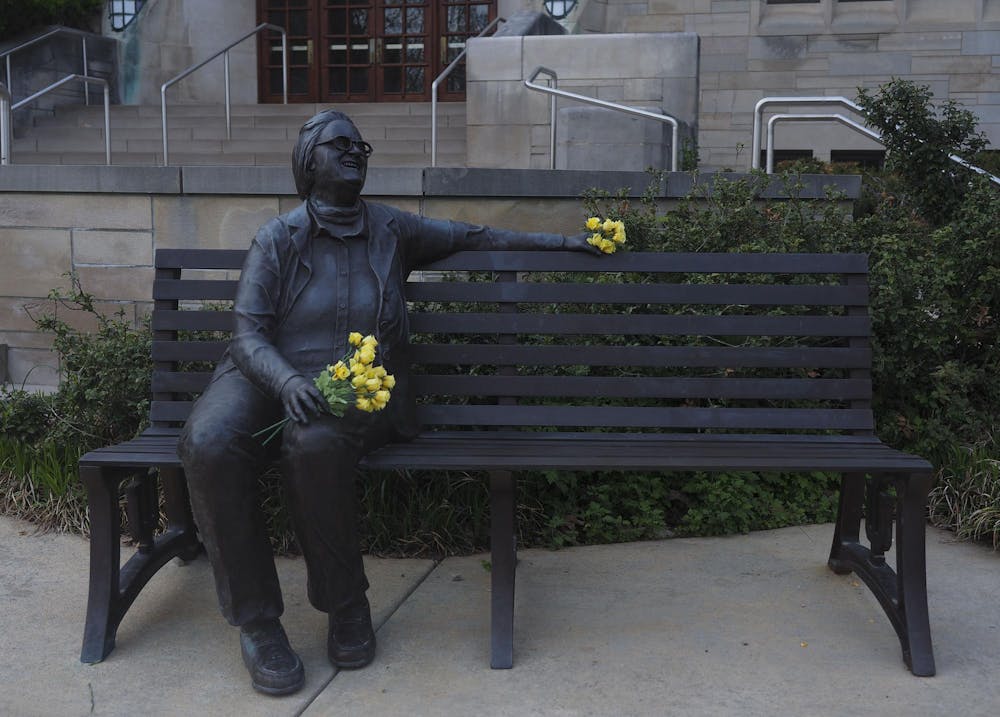IU’s status as a premier research institution over many decades has racked up several Nobel Prize winners, both faculty and alumni. Here are seven university-affiliated prize winners:
Philip H. Dybvig
Philip Dybvig is the latest IU alum to get a Nobel Prize — receiving the Nobel Memorial Prize in Economic Sciences in 2022. He graduated from IU with a degree in mathematics and physics in 1976.
Some don’t consider the memorial prize, established by Sweden's central bank, as a “true” Nobel Prize because it wasn’t in Alfred Nobel’s will. Regardless, Dybvig got the prize for his research on banks and financial crises.
Elinor Ostrom
Elinor Ostrom got her Nobel Memorial Prize in Economic Sciences in 2009 for research analyzing economic governance. Ostrom was the first woman to receive the prize and was a faculty member at IU for nearly 50 years.
She founded the Ostrom Workshop with her husband in 1973, an organization that still exists to this day. You can find her statue on a bench outside the south end of Woodburn Hall.
Renato Dulbecco
Renato Dulbecco is an Italian American virologist who came to Bloomington after World War II and studied bacteriophages – small viruses that infect bacteria.
He later received the Nobel Prize in Physiology or Medicine in 1975 for research on viruses that can cause cancer when infecting animals’ cells.
Salvador Edward Luria
Salvador Luria was an Italian American microbiologist who shared his lab with Dulbecco in Bloomington after fleeing World War II. He received the Nobel Prize in Physiology or Medicine in 1969 for discoveries relating to virus replication and their genetic structures.
Johannes Hans Daniel Jensen
Johannes Hans Daniel Jensen was a German American nuclear physicist who worked on the German nuclear energy project in World War II.
He was a visiting professor at IU for one year in the 1950s. He received the Nobel Prize in Physics in 1963 for research on the structure of atoms.
James Watson
James Watson is arguably the most famous IU-related Nobel laureate for his discovery of DNA’s structure. He was Luria’s first graduate student and completed his Ph.D. at IU in 1950.
He received the Nobel Prize in Physiology or Medicine in 1962. He continued research in the field. He later had a lengthy history of racist and sexist comments, not based in science.
Hermann Muller
Hermann Muller received the Nobel Prize in Physiology or Medicine in 1946 for his research in X-rays, discovering that X-ray irradiation can induce gene mutations.
Right before receiving the award, he joined IU as a professor in Zoology.
This story was originally published in the Indiana Daily Student's Source print publication March 3, 2025.




